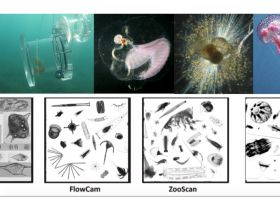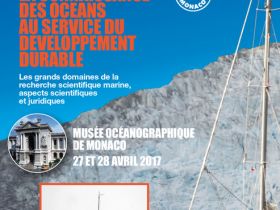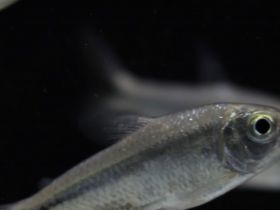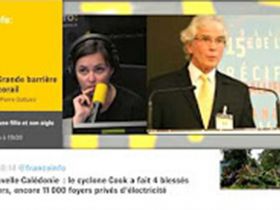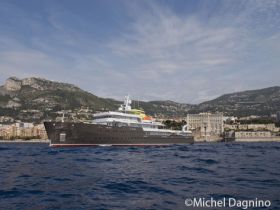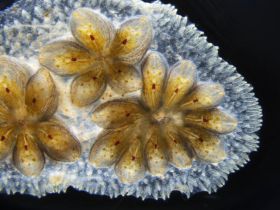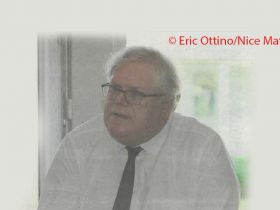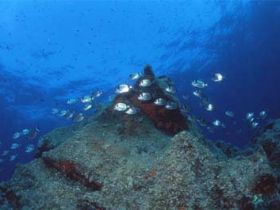
A l'occasion du séminaire mensuel de l'équipe Biodiversité et Biogéochimie (B&B) du Laboratoire d'Océanographie de Villefranche-sur-Mer (LOV), Lydia Kapsenberg (post-doctorante travaillant avec Jean-Pierre Gattuso, Directeur de recherche) donnera ce jeudi 4 Mai une conférence en interne sur l'acidification.
- Lydia Kapsenberg : Coastal ocean acidification and increasing total alkalinity in the NW Mediterranean Sea
Résumé: Coastal time-series of ocean carbonate chemistry are critical for understanding how global anthropogenic change manifests in near-shore ecosystems. Yet, they are few and have low temporal resolution. At the time-series station Point B in the NW Mediterranean Sea, seawater was sampled weekly from 2007 through 2015, at 1 and 50 m, and analyzed for total dissolved inorganic carbon (CT) and total alkalinity (AT). Parameters of the carbonate system such as pH (pHT, total hydrogen ion scale) were calculated and a deconvolution analysis was performed to identify drivers of change. The rate of surface ocean acidification was -0.0028 ± 0.0003 units pHT yr-1. This rate is larger than previously identified open-ocean trends due rapid warming that occurred over the study period (0.072 ± 0.022 C yr-1). The total pHT change over the study period was of similar magnitude as the diel pHT variability at this site. The acidification trend can be attributed to atmospheric carbon dioxide (CO2) forcing (59 %, 2.08 0.01 ppm CO2 yr-1) and warming (41 %). Similar trends were observed at 50 m but rates were generally slower. At 1 m depth, the increase in atmospheric CO2 accounted for approximately 40 % of the observed increase in CT (2.97 ± 0.20 mol kg-1 yr-1). The remaining increase in CT may have been driven by the same unidentified process that caused an increase in AT (2.08 ± 0.19 mol kg-1 yr-1). Based on the analysis of monthly trends, synchronous increases in CT and AT were fastest in the spring-summer transition. The driving process of the interannual increase in AT has a seasonal and shallow component, which may indicate riverine or groundwater influence. This study exemplifies the importance of understanding changes in coastal carbonate chemistry through the lens of biogeochemical cycling at the land-sea interface. This is the first coastal acidification time-series providing multiyear data at high temporal resolution. The data confirm rapid warming in the Mediterranean Sea and demonstrate coastal acidification with a synchronous increase in total alkalinity.

